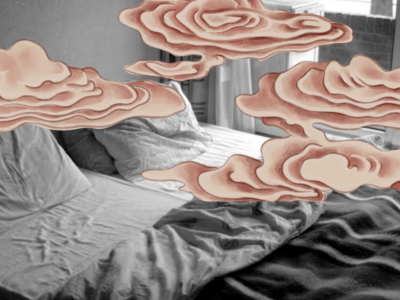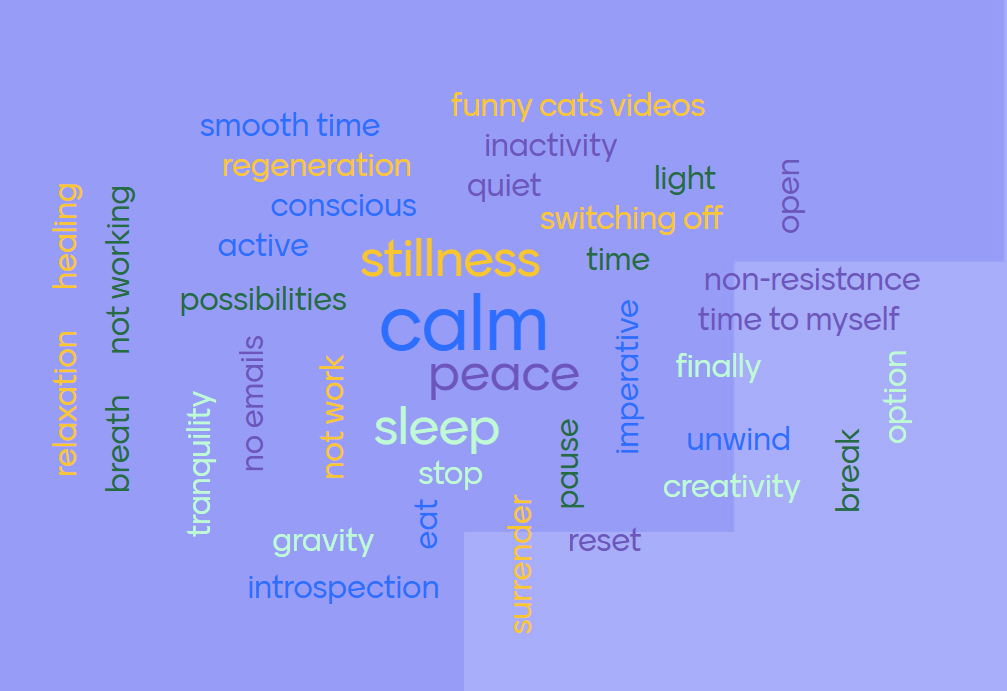
A guest blog by Dr Adriana Alcaraz Sánchez:
The one-day workshop on 22 May 2025 titled Insights on Sleep, Rest, and Dream Experiences: Perspectives from the Arts and Humanities brought together scholars from different disciplines working sleep experiences and our relationship to sleep and rest. Additionally, it created a forum for discussion and reflection, combining more standard academic presentations with hands-on experience sessions.
The workshop kicked off with a reflection session where participants were invited to reflect on the meaning of ‘rest’ by describing, in three words, what it feels like for them, and also, to think about how interdisciplinary practices can shape and impact our relationship to sleep and rest.

After this introduction, we had a session of thought-provoking presentations by Dr Marco Bernini, Dr Robert Cowan and myself on different questions about the nature of dreaming.
Marco spoke about the similarities between dreams and narratives as states of ‘low-saturation’, or ‘incompleteness’, and their divergent features: ‘presentationality’, or the feeling of being present in a world. Robert made the case that lucid dreams might not be as ‘dreamy’ as we might think: in fact, most of their defining features, are not characteristic of sleep at all (i.e. intentional control, and recovery of autobiographical memories). Finally, I introduced the field of ‘dream engineering’ and the possibility that dreams might be ‘hijacked’ by some tech companies and their devices to induce lucid dreaming.
After lunch, Maria led a panel session with Dr Sophie Jones, Dr Elizabeth Reeder and Professor Felicity Callard on questions about sleep and rest and the impacts on our lives. In the discussion, amongst other themes, a recurring idea emerged: the power of daydreaming. Daydreaming as resistance to the status quo; as a state of experimentation, as a form of sanity that doesn’t need to be sanitised; as a state for living the ‘present’ and forgetting about the past and future; as a state of creativity.
During the ‘creative session’, Maria and Oli Hazzard read extracts from their books: Midsummer Song/Hypercritique and Sleepers Awake, which were respectively inspired from their own relationship to dreams and liminal states.
Following the reading and discussion, Kevin guided us through two listening exercises inspired by Pauline Oliveros' ‘deep listening’ to encourage an active form of ‘listening’ as opposed to mere ‘hearing’. We were invited to sit in silence, listen to any sounds we noticed, and write them down.
To end the creative session, we were invited to try writing some haikus, inspired by our experiences from the deep listening, and our thoughts during the workshop.
We finished the day with an open discussion with the participants about their thoughts about the event and how it might have helped them to have a different perspective on how practices from the Arts and Humanities can be applied to the study of sleep, rest, and dreams.

We received very positive feedback from everyone, and it was very encouraging to hear how scholars working on different disciplines benefited from and learned from each other’s approaches to the topic.
From organising and delivering this workshop, I learned various things. First, that I shouldn’t worry so much about pushing the boundaries of my discipline, and that interdisciplinary collaboration with scholars in the Arts and Humanities can be more enriching than I originally thought.
Second, any academic event should always include a reflective session—not only to allow for active participation, but also to enable us to learn more from each other. Similarly, every academic event should also include some kind of creative session to let thoughts and insights flow, enhance the discussion, and allow for collaboration among the participants.
In the spirit of continuing and expanding the conversation we had at the event, Maria, Kevin, and I wrote a much longer account of the workshop and our reflections on it. You can find it here.
The workshop ‘Insights of Sleep, Rest, and Dream Experiences: Insights from the Arts and Humanities’ was held on the 22nd of June 2025 at the Institute for Advanced Studies in Humanities at the University of Edinburgh and it was organised by Dr Adriana Alcaraz Sánchez, Dr Maria Sledmere, and Dr Kevin Leomo. The workshop was generously supported by the Susan Manning Workshop Fund.
